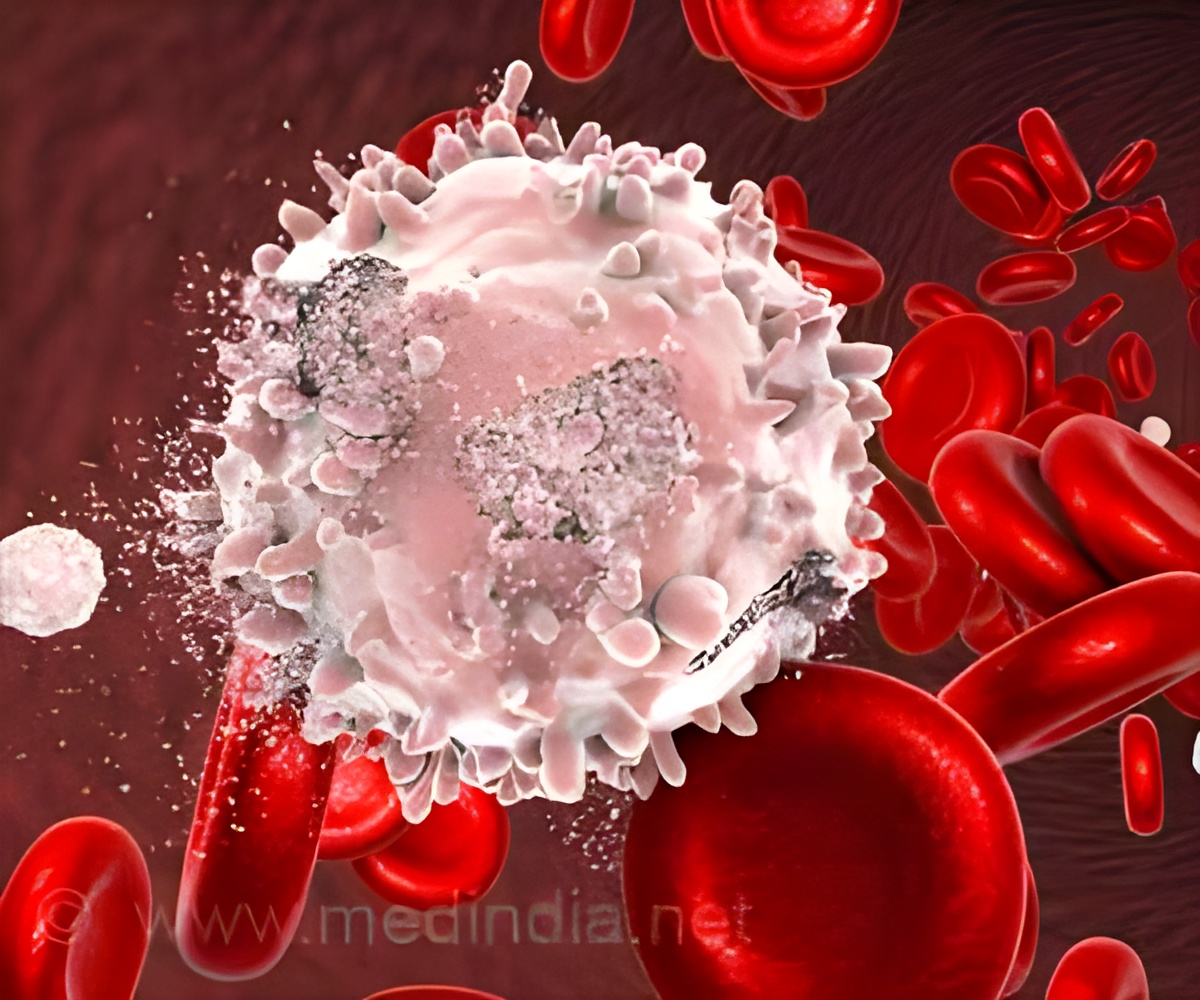Researchers of Case Western Reserve University School of Medicine discovered therapy to treat drug-resistant acute lymphoblastic leukemia.

‘Combination treatment containing BAFF-R antibody and TGF-beta inhibitor could be the new promising regimen for late-stage acute lymphoblastic leukemia which benefits adults who are unresponsive to current drugs.’
Read More..




Acute lymphoblastic leukemia accounts for one in five adult leukemias, and is the most common pediatric cancer in the United States. While new immune therapies have helped improve survival rates, some patients are unresponsive to existing treatment regimens. In addition, drug-related toxicities and drug resistance are rampant for these patients, spurring an urgent need for new therapy options. Read More..
The antibody attached specifically to acute lymphoblastic cancer cells as early as 30 minutes after treatment, and remained attached for two days, serving as a flag to attract natural killer immune cells. The researchers were able to maximize the antibody's efficacy by adding a second, anti-tumor molecule to the regimen.
Results published in Cancer Immunology Research describe how the antibody attaches to a specific protein on the surface of acute lymphoblastic leukemia cells (B-cell Activating Factor, or BAFF-R).
Once the antibody attaches to a cancer cell, natural killer cells also attach to the antibody and this antibody acts like a bridge connecting cancer cells to natural killer cells, where it quickly gets to work destroying the cancer cell. The antibody connects with natural killer cells through a second protein commonly found on their surfaces (CD16).
The researchers, Reshmi Parameswaran, PhD, assistant professor in the Department of Medicine and MD/PhD student in her lab and the Department of Pathology, Yorleny Vicioso, created a new acute lymphoblastic leukemia mouse model for the study. They used mouse models with growing, drug-resistant cancer cells collected from human patients. Then, they tested treatments over the course of disease progression--starting with the antibody alone.
Advertisement
As cancer cells grow, they secrete molecules that disrupt and confuse the body's natural immune responses. The area around an established tumor--its surrounding "microenvironment"--can contain myriad molecules that inhibit immune cells. Parameswaran's team found unusually high levels of an inhibitory molecule called TGF-beta in the bloodstreams of the mice.
"There was a clear negative effect of the tumor microenvironment on natural killer cell killing capacity," Parameswaran said. "So, we added a TGF-beta receptor inhibitor to our antibody treatment regimen."
Using their mouse disease model, the researchers showed that the combination of these two treatments enhanced killing of acute lymphoblastic leukemia cells--even if the disease was advanced. Antibody and TGF-beta receptor inhibitor treatment increased natural killer cell activity against cancer cells by up to 35 percent. The researchers confirmed the combination's efficacy in mice injected with acute lymphoblastic leukemia cells from four different patients.
The combination treatment could represent a promising new regimen for late-stage acute lymphoblastic leukemia, particularly benefitting adults who are unresponsive to existing options. Data from the new study suggest the antibody, which that attaches to BAFF-R on cancer cells, could be more effective in older patients.
"We looked at BAFF-R expression in a small group of 16 patients and all of them expressed this receptor. It's promising as a therapeutic avenue for late-stage disease" Parameswaran said. Data from larger patient sets will help us draw a definitive conclusion."
The custom BAFF-R antibody is currently being tested as a therapy to treat autoimmune diseases and rheumatoid arthritis in two clinical trials. The TGF-beta inhibitor was recently tested in a first-in-human clinical trial for treatment for advanced-stage solid tumors. The new mouse model study provides critical preclinical data to support combining the two treatment in human trials, Parameswaran said.
Source-Eurekalert











